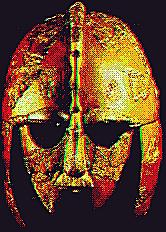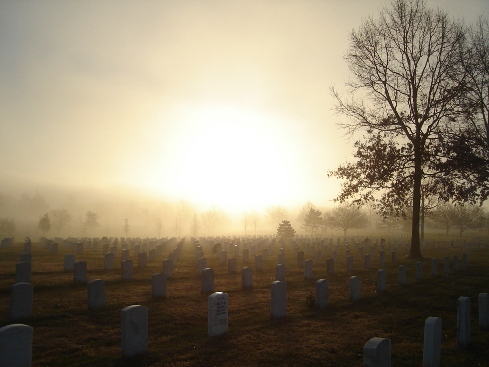For those of you who do not know, my father is deteriorating rapidly and will probably pass on sometime very soon. His long struggle with cancer is finally over; cancer won the physical, but my father, God bless, won the more important battle. If you do not know my father, I consider him one of the greatest men I've ever known. He's never entered politics, he's never commanded armies, he's never invented gadgets that alter the course of history, nor has he published the definitive North American novel. But my father did two things much more important.
First, he was a dad. He loved my mother and us six children and he spent time with us. In our day and age, such fathers of honor, fidelity and courage are rare. Recently, my son said that "I love my dad b/c he talks to me." Strangely, that is what makes my father so great in my estimation... he talks to me. He engages me as a human being in conversation and thought and has, over the years, become more friend than father.

Second, he was a warrior. I don't know all the demons with which he wrestled, but I know many and am familiar with that most dangerous demon of the abyss. I know what it's like to stare into that nothingness at the heart of human existence, being incapable of a Kierkegaardian leap, and instead cowering at the edge like Kurtz saying "the horror! the horror!" Dad never gave into that. He ran the race, completed the course. Or, to use the other metaphor, he held the line against the attacks of the enemy. When he could have despaired, abandoned all seven of us, thrown away the trappings of civilization and culture and given over to the riptide of popular barbarism he chose instead honor, courage, commitment to us and to honesty. His thought was clear, neither cluttered with acerbic atheist despair, nor clouded by overly pious religious flim flam. Dad was honest and honestly courageous and I find that admirable in any man; most of all in this great friend of mine.
I don't agree with Dylan Thomas in his "
Do not go gentle into that good night" that old men should respond with rage when they think about their own oblivion having accomplished nothing. Rage is not the answer. As Lord Peter Wimsey realizes in "Strong Poison" if we give in to that rage to smash things, someone will just come along, clean up the mess and return everything to the same condition it was in before. Rage accomplishes nothing. Nor does our anger at the necessity of death succeed in producing any results. We don't postpone death; nor do we ease our own death so that, like
Ivan Ilych, we feel ourselves stuffed into a bag. Death comes. Tempus fugit, nocte venit. Et in Arcadia ego. If it is true that "called or uncalled the God will be there" how does raging against the god effect anything? Certainly, we don't just roll over and die, but rage? no. There is no rage.
All is gift. All is wonder. All is joy. And I am overjoyed in the midst of intense sorrow at losing my friend and father that I have a father/friend to lose. I also don't agree with Hopkins in his "
Spring and Fall" that the grief is for myself. It isn't. My father dies without pain of body. The cancer has deteriorated his muscles and b/c he can't get enough nutrition his body is eating itself; eating the muscles that work his limbs. There is no pain (the doctors say) - he just grows weaker and sleepier until he falls asleep and doesn't awaken. So I don't grieve for his pain of body but thank God that he is spared that. Nor do I grieve for his spirit; he has not despaired like Denethor despite having stared into the Palantir for some time. He has remained honorable and loving and good. Nor do I grieve for myself b/c I know that I will die. My own death doesn't cause me any grief, even if the possibility of nothingness, that abyss of
Hesiod and Genesis and Kierkegaard, does. So Hopkins is wrong even in his beautiful poetry.
No, my grief is because I love. To love is to feel pain. The second you open yourself to that terrible joy of love you run a great risk. The thing you love will die and no amount of transference to some abstract concept of God will replace your love of temporal things or beings. If you love you will lose and if you lose you will feel pain. The reverse formula is simple. If you do not wish to feel pain simply do not love. Love nothing. Never submit to the sweet joy of honesty and eros. But that is inhuman; it is nothingness, and if the abyss terrifies me this desert of emotional barrenness carries an equal terror. Perhaps they are one and the same, abyss and desert; oblivion - to not be remembered in love - to never love - to cease on the midnight with no pain.
I agree with Hamlet when he says
We defy augury. There ’s a special providence in the fall of a sparrow. If it be now, ’t is not to come; if it be not to come, it will be now; if it be not now, yet it will come: the readiness is all. Since no man has aught of what he leaves, what is ’t to leave betimes?My father was ready, had been ready for many years, had made himself ready by the slow, steady giving away of himself in love. When his final moment comes he will have accomplished that spiritual alchemy that transforms the leadenness of our fearful selfish little souls into the gold of love.
No, I am grieved b/c, as my brother put it, I'm selfish and don't want the party to end. But I do think that this is what the Passion of the Christ means; not wanting to let the party end, yet having the courage to endure the pain involved with allowing it to end. All men are mortal. My father is a man. Therefore my father is mortal. Thank God that he is man enough to have joined the human race and leave behind grieving but joyful loved ones.
If this is an encomium then I'll end with a final poem. This from old English,
the Battle of Maldon; it was always one of my father's

favorites.
Brythwold spoke, grasped his buckler, He was an old comrade, urged the men, He full boldly cheered his soldiers, "Thought must be the harder, heart the keener Spirit shall be more - as our might lessens."







